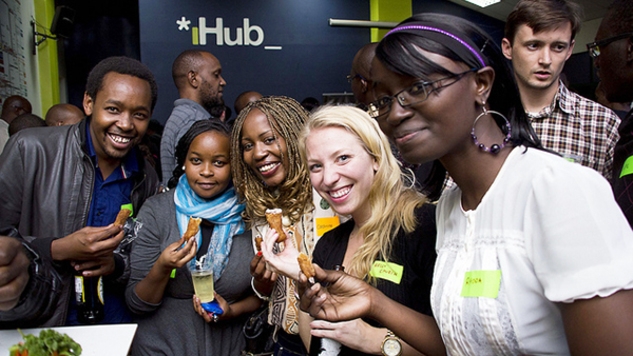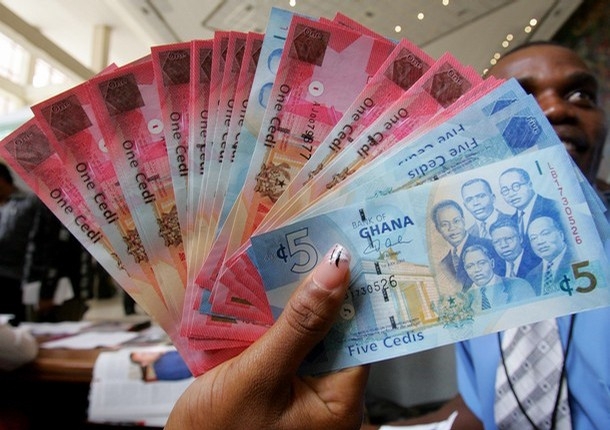
“Innovation spaces are a big deal. There are currently 220 maker spaces, tech hubs and innovation spaces in Africa according to Fab Lab.”
AFRICA is the last investment frontier, analysts like to say.
The continent has a largely untapped consumer market, a growing middle class, the world’s most youthful population and increasing purchasing power. But doing business in Africa is not as simple. The solutions built still have to be locally relevant and affordable; for example streaming services as they currently are won’t do well in much of the continent as internet access is still limited and expensive.
But where some see hindrances, others see potential.
Start-ups addressing the needs of the continent are quickly becoming a hot topic and attracting investors from all over the world. In a recent report by VC4Africa, 2015 Venture Finance in Africa; the progress of early-stage, high-potential companies, it is estimated that $27 million worth of deals were made on that platform alone.
A few key trends from the report as well as the overall start-up scene on the continent have emerged.
1. Technology is king. Overall, it accounts for 62% of the deals closed on VC4Africa . A further breakdown of the numbers shows that computer software deals account for 24%, internet-related services account for 21% and e-commerce accounts for 17%. There is still a huge technology access gap on the continent as much of it lacks internet (and electricity) and when available it is slow and costly. There is an opportunity for innovative public-private partnerships that would help the cost of internet and mobile broadband fall while spurring local startups that use the services. For context, Kenya has an unlimited 4mbps home connection available for $20 while Mali, which has the second highest cost of internet on the continent, has 387kbps for $58.
2. Investments in infrastructure do pay off: Kenya, Nigeria and South Africa, which are doing so, have the most deal volume. These countries have, comparatively, good internet, skilled tech workers and governments that recognise the importance of technology as a driver of growth. The investments countries like Kenya have made on fibre optic internet cables are showing returns.
3. When it comes to agriculture, think size, not quantity. Investments in agriculture are often large as they include purchase of expensive equipment, leasing land and setting up distribution channels. Africa, with 60% of the world’s arable land, has the potential to feed the world but lacks the infrastructure and technology to do so.
The road networks to markets in most countries are weak or non-existent and the lack of regional integration makes it difficult to produce in large scale. Funds such as NISABA and Private equity firm KKR are making investments in the sector to the tune of $150 million, but these bottlenecks hinder higher growth in the sector.

4. Impact investing is big, the impact not so much. Impact funds—funds looking for societal, environmental as well as financial returns on their investments—are an increasing influence on the investment landscape in Africa. Research by the Bertha Institute of the University of Cape Town found that in assessing four different impact strategies (the guiding principles when making investments) many funds still failed to report impact; that is if the intended outcome such as improved sanitation was reached.
According to Ben White, co-founder of VC4Africa, deals in Kenya are skewed by the presence of impact investors as well. This is supported by data from the Global Impact investing network, which states that $9.3 billion has been invested in this sector in the past five years, with 47% of the funds going to Kenya. Opponents of impact investing say that the investments in sectors such as energy and sanitation make governments abdicate their roles to their citizens to provide the services their taxes pay for.
5. Angels to the rescue: Angel investment is growing on the continent and is a big source of funding especially for early stage businesses. With the recent launches of organizations such as the Ghana Angels Investor Network, Lagos Angels Network and Africa Business Angels Network, angel investment is going to become an active player in the start-up scene. Angel investors make up the majority of investors on the VC4Africa platform.
6. Innovation spaces in Africa are a big deal. There are currently 220 maker spaces, tech hubs and innovation spaces in Africa according to Fab Lab. The concept of fostering a start-up community to spur entrepreneurship has been embraced fully on the continent. According to the VC4Africa report, there is a correlation between being a part of these spaces and raising funding for your start-up: “Ventures that participate in acceleration programmes or events raise higher median and average amounts of capital compared to those who don’t”. These spaces help to increase visibility and access to funders, however if the majority of deals are in a handful of countries, it does beg the question as to whether or not these hubs are really acting as catalysts for businesses and providing a real pipeline for potential investors.

7. There is growing interest in the continent from external funders. Hong Kong Based Venture Capital fund Nest VC opened its Africa office in Nairobi, while KKR, a US based private equity fund is investing in African agriculture and funds. General Electric is investing heavily in infrastructure on the continent with interests in electricity, health and transportation, in addition to scores others.
Source: Mail & Guardian Africa









